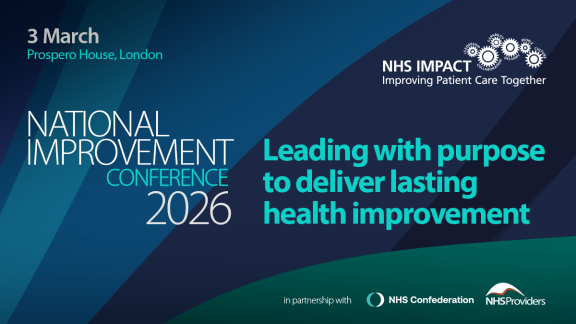Why we’re stronger together

While the headlines this week have again exposed the extraordinary reality of life on the NHS and social care frontline, the coverage rarely highlights the interconnectedness of our services or why this matters so much, writes Niall Dickson, chief executive of the NHS Confederation.
We know we cannot relieve, never mind resolve, the relentless and growing year-round pressure in emergency departments if we do not reform and invest in public health, social and community services and primary care.
And by reforming primary care we mean more than supporting individual family doctors, who are also facing intolerable demand. The answer has to involve bringing together the whole primary care effort within an area and supporting it to devise and deliver new types of service in partnership with the community and voluntary sector, community and social services, mental health and secondary care.
For too long we have lived in a system with perverse incentives which has encouraged short term silo-based responses. We need to move to one where what is in the interest of one is in the interests of all.
Now we have the Long Term Plan for England, which represents a sensible roadmap. But its ambitions can be only be realised through greater collaboration, partnerships and system working and the difficult bit will be making this happen.
What we can do
At the Confederation we believe the success of this project and the future of health and care in England depends almost entirely on the ability of organisations and systems to work together in new ways. The sum has to be greater than the parts.
As the membership body that aims to cover and convene all parts of the health system, we are seeking to support and represent providers and commissioners but also the wider systems. If we are to be effective at national level and in supporting members locally, we too need to embrace the whole landscape.
That is why the Confederation, which includes NHS Clinical Commissioners, has launched the first report of our new network for Primary Care Networks. The network will provide a collective voice for PCNs throughout England and influence national policy and debate, working in partnership with the National Association of Primary Care, the British Medical Association and the Royal College of General Practitioners.
Primary Care Networks will be a core building block for the future of the NHS. The aim is to enable general practices to work together with community health services and social care to pool their resources. Working with these partners, the networks can take forward a new paradigm of population health which can help create a much wider range of interconnected multi-disciplinary services to support people in their own homes.
The potential is significant and is being demonstrated in some areas already. It is possible now to use data and technology to identify and act on needs at an earlier stage, to join up care, and support with interventions tailored to patient need. The prospect is a revolutionised and unified primary, community and social care service with public health support. It will be able to manage a population of around 30,000 to 50,000 and will be committed to improving outcomes for health and wellbeing and to keeping everyone as independent and as healthy as possible.
The new PCNs are not legal entities, and they have arrived in every area of the country and find themselves in the maelstrom that is health and care provision. There is a lot riding on these new networks - and not just for them, but for the whole of the NHS and care.
We have just surveyed new PCN Clinical Directors, who have been charged with leading this work. For many this is their first leadership role. It makes sense, then, to offer our support and to welcome them into the Confederation family.
Why this matters
In this first report, the Network warns that the government’s latest health pledges – more GP appointments, increasing access to services away from hospitals, improving NHS performance, and more staff - are at risk of being a pipedream without adequate investment in primary care.
The response to our survey of PCN Clinical Directors shows that nearly half are confused about the funding available to them and how it is allocated.
They also raised concerns about whether the draft ‘service specifications’ from NHS England and NHS Improvement will be properly funded. These specifications will set the requirements of Primary Care Networks for the next four years. To be fair, the centre has already indicated that it will make changes, but we remain concerned these will not go far enough. Although it should not be a huge sum, PCNs must also be given adequate protected funding to enable them to have dedicated management support. As things stand, the system is asking for too much from too small a resource.
And they will need time. If we all agree everything depends on building trust and relationships, these new players must be given the space to develop the relationships between their general practices, and with their partners across the health and care system. That in turn will require recognition from the centre but also support from all the other players.
The prize for making this work is enormous. We are keen to do what we can to support and give PCNs voice, just as we are doing for Integrated Care Systems (with their new Confederation network) and for clinical commissioners, providers of acute, community and mental health services and their partners.
The NHS will come under significant pressure this year, with higher expectations, more headlines and limited explanations about the causes or the efforts that are being made to find solutions. Together we can be a stronger voice supporting each other – at the Confederation we will do what we can to make this happen.
Niall Dickson is chief executive of the NHS Confederation. Follow him on Twitter @NHSC_Niall.



